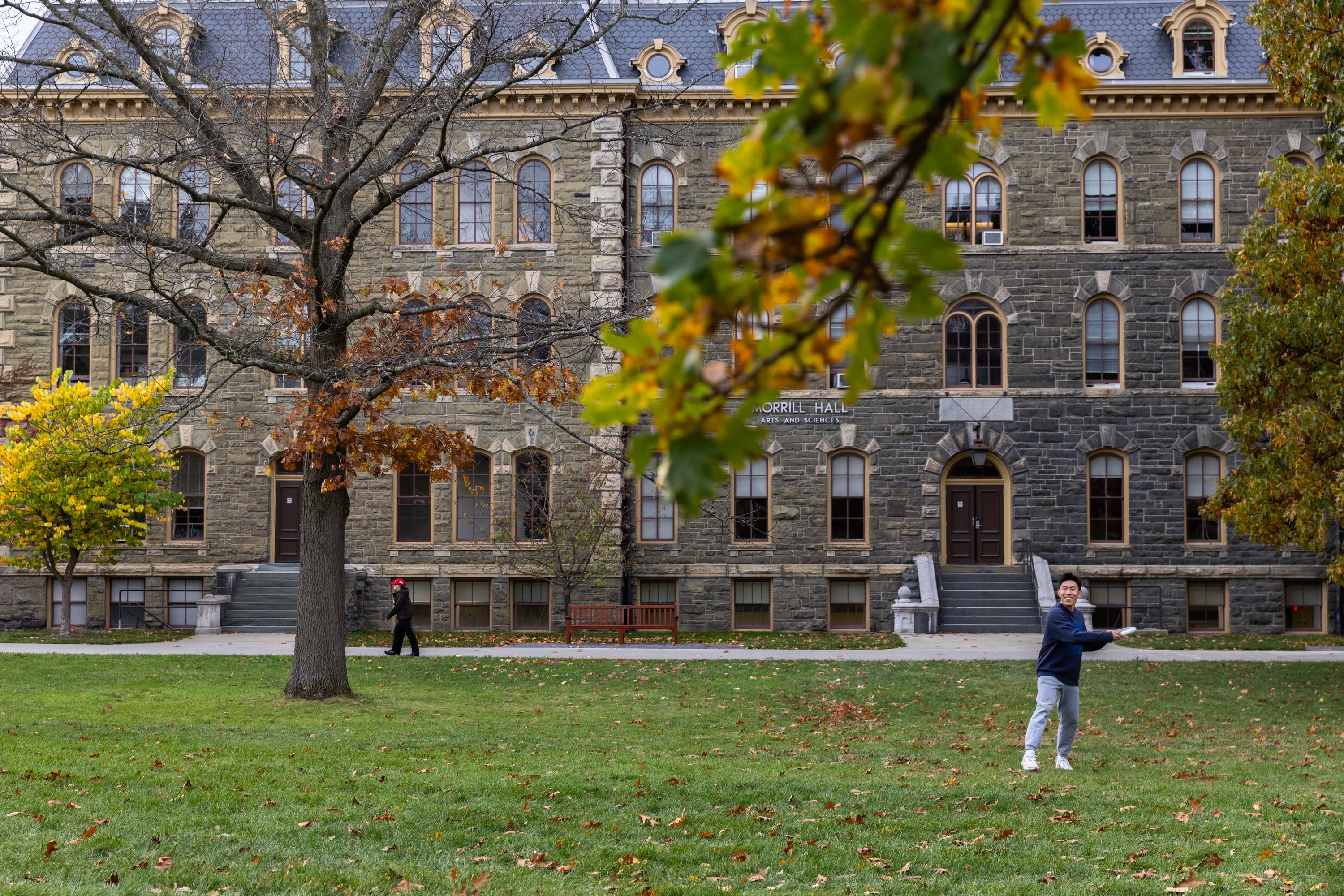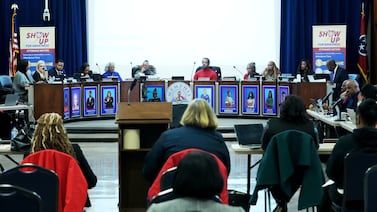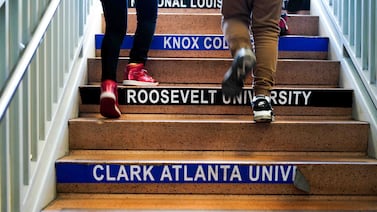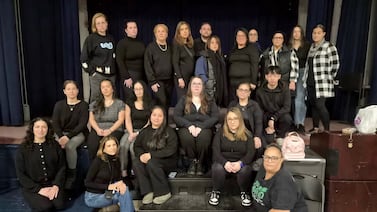Sign up for Chalkbeat New York’s free daily newsletter to keep up with NYC’s public schools.
Some New York lawmakers, students, and advocates are calling for colleges in the state to end the practice of legacy admissions, which grants additional priority to the relatives of alumni.
Proponents of the “Fair College Admissions Act” say giving preference to students whose relatives attended an elite institution overwhelmingly favors white, wealthy families. The bill would prohibit the use of legacy admissions for undergraduates by colleges and universities in New York, while establishing financial penalties for those who refuse to comply with the law.
The push for the bill follows a U.S. Supreme Court decision last year that overturned affirmative action, significantly hindering the nation’s colleges and universities’ ability to consider race during admissions.
State Sen. Andrew Gounardes, a sponsor of the bill, called legacy admissions “a form of affirmative action for students of immense privilege.”
“At institutions that do use legacy, the admissions rate at some of the most exclusive schools is four times greater for legacy students versus non-legacy students,” he said. “And 75% of all legacy students come from the top 10% of wealthiest families in the country.”
Nationwide, nearly 30% of higher education institutions consider legacy status — with that figure rising to over 40% in New York, according to a report by the advocacy group Education Reform Now. And in 2022, a study found a growing number of adults believed legacy status should not play a factor in admissions, including more than 70% of both Democrats and Republicans.
At schools where legacy admissions have long been the norm, opposition has continued to surface on campuses. At Cornell University, students have passed multiple resolutions calling for the university to end the practice.
“It’s a fundamentally wrong and unfair practice,” said Claire Tempelman, a senior at Cornell who helped introduce a 2021 resolution urging the university to end legacy admissions. The Supreme Court’s decision on affirmative action last year only added to the urgency around the issue, Tempelman said.
“It’s ridiculous that even though you’re getting rid of affirmative action, you’re still keeping what is essentially affirmative action for the wealthy,” she added. “It’s this hypocrisy that makes legacy admissions just seem even more untenable.”
Jonathan Lam, a freshman at Cornell, said he’s been particularly concerned about the impact of the Supreme Court’s decision. As a child of Vietnamese refugees, he said he received significant help navigating college admissions from Thrive Scholars, a nonprofit organization that supports students of color from low-income communities.
“If we’re going to overturn affirmative action, and say that these DEI academic programs are problematic and controversial, then it also puts a lot of these organizations that supported students like me at risk,” he said. “It adds this urgency to the need to have a conversation about not just temporary solutions to supporting BIPOC and first-gen students, but also understanding the education system.”
It’s a cause that has earned the support of major advocacy groups in the state. The New York Coalition for Fair College Admissions — which includes the NAACP New York State Conference, the New York Civil Liberties Union, Education Reform Now, and other groups — has repeatedly called for the practice to end.
“The gutting of affirmative action makes ending this practice for New York even more of a racial-justice imperative,” said Jake Martinez, deputy director of NYCLU’s Education Policy Center. “When you think about the wealth that these families have … Low-income students, first-generation students don’t have those same resources.
“So wealthy families have not only the resources for college readiness, but also an upper hand through legacy admissions,” he said.
In May, high school and college students from across the state will travel to Albany, urging lawmakers to pass the legislation as part of a youth lobby day, Martinez added.
Other states are also considering changes to the practice. In Virginia, state lawmakers passed legislation earlier this year that barred public universities from giving preferential treatment to the relatives of alumni and donors. Meanwhile, in 2021, Colorado became the first state in the nation to ban legacy admissions — though the broader impact of that change remains unclear.
And in New York and elsewhere, some institutions have voluntarily stopped considering legacy status in admissions. Last year, NYU removed a question asking whether applicants were the children of alumni from its application — with the college affirming that legacy status does not play a role in admissions.
Under the proposed New York law, colleges that continue to consider legacy status in admissions would face a financial penalty — with the money collected being funneled into the state’s tuition assistance program for low-income students.
“All of these institutions benefit from New York state dollars,” Gounardes said. “We should not be funding exclusionary practices.”
With the state budget now enacted, he is hopeful that lawmakers will move to address legacy admissions. There’s been general support for the bill among colleagues in Albany, according to Gounardes.
“It may seem small, but it strikes at the notion of fairness and justice,” Gounardes said. “To allow a student to get into one of the most elite schools in the country just because their parents went there … That just seems inherently unfair.”
Julian Shen-Berro is a reporter covering New York City. Contact him at jshen-berro@chalkbeat.org.






